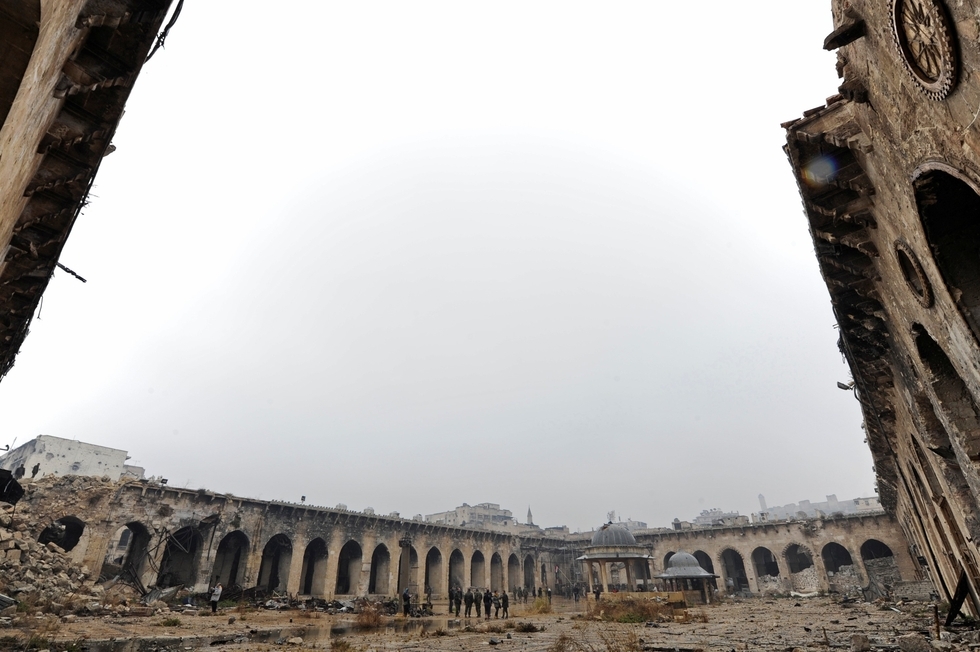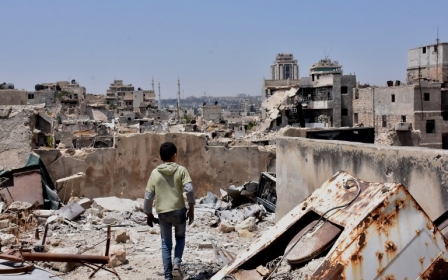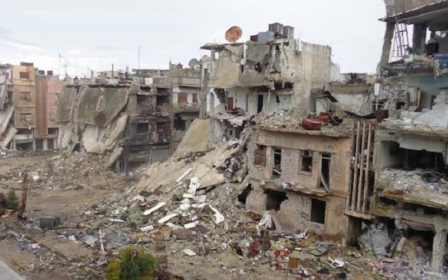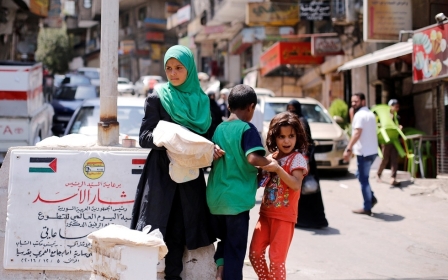Syria's reconstruction: Winners and losers

There is a growing debate about reconstruction in Syria in Western and regional policy circles. The European Union has been closely studying options for reconstruction, while some Western (and non-Western) governments are positioning themselves so that they can play a role in the reconstruction process.
Regional states are also stepping up their activities in this regard, since no one wants to be left behind when the time comes for Syria to take a step beyond the current conflict.
Donors' motivations behind participating in the reconstruction efforts are not just about humanitarian aid but also about politics
But this debate on reconstruction appears to be based on the assumption that the whole of Syria would be equally targeted by post-war reconstruction plans, and that all Syrians would be equitably treated in this process. The reality contradicts this assumption.
Post-war reconstruction debate
Debating reconstruction today is happening at a time when, according to a recent report by the International Committee of the Red Cross (ICRC), Syria is witnessing its highest wave of violence since the fall of Eastern Aleppo. It is also happening at a time when plans for de-escalation zones have been announced while Russia continues to bombard the same areas it is supposed to be safeguarding. Meanwhile, civilians continue to be collateral damage in the international anti-Islamic State (IS) coalition's air campaign on Raqqa.
The campaign's military strategy is similar to that used to liberate Iraqi cities from IS control, which has led to wide-scale destruction of those cities' infrastructures. The continuation of violence on this scale will inevitably raise the cost of post-war reconstruction even beyond the currently estimated figure of $200-$350bn.
There is a degree of consensus in international policy circles that Russia and Iran cannot bear this financial burden alone, and that international donors will have to be involved to cover the costs.
However donors' motivations for participating in the reconstruction efforts are not just about humanitarian aid but also about politics. Funding is one way in which to retain a degree of influence in Syria.
With Russia positioning itself to play the role of key broker in Syria's reconstruction, some regional states have taken steps to keep lines of communication with Moscow open despite political disagreements over Syria.
Individuals with vested interests from across the political spectrum in countries neighbouring Syria are also jumping on the Russian bandwagon. Recent visits to Moscow by Lebanese politicians have included rivals from both the March 8 and March 14 Lebanese political camps.
This political manoeuvring will have a direct impact on how reconstruction plans will be implemented inside Syria. Russia will inevitably seek to have the Syrian government be the key distributor of reconstruction funds.
Although regime-controlled areas have been less affected than opposition-controlled areas in terms of material destruction, it is likely that the Syrian government will funnel most funding to areas considered to be loyalist.
Rewarding loyalists
Foreign individuals with vested interests are likely to turn a blind eye to inequalities of reconstruction fund distribution in order to protect their business interests. Regional actors will follow a similar path in order to remain political stakeholders in the process.
The Syrian regime wants to reward its loyalists through using reconstruction funds to improve their areas, but it also wants to punish those areas whose residents rose against the regime
Syrian businessmen who are already part of the political elite have started forming new companies so that they can position themselves favourably in procurement processes for reconstruction projects.
All the above means that implementation of reconstruction plans will not be equitable.
The Syrian regime wants to reward its loyalists through using reconstruction funds to improve their areas, but it also wants to punish those areas whose residents rose against the regime. Continuing to bombard these areas is likely to be followed by denying them access to reconstruction funds.
Neglected areas
With foreign donors and actors having to adjust their political positions in a bid to remain relevant, it is likely that these neglected areas will be left with no one advocating on their behalf.
This is likely to keep thousands of refugees, who had fled these areas to Lebanon, Jordan and Turkey, abroad as they will have no homes to return to and no realistic prospects of restoring their livelihoods inside Syria. Fewer residents in these areas make them easier for the Syrian government to control, offering another incentive for the government not to make the areas desirable for living.
With or without the West, the Syrian regime - and its Russian and Iranian patrons - will be concentrating on reviving loyalist areas and not areas that the regime currently has no control over
The debate on reconstruction in Syria has been dominated by the issue of whether or not the West will be able to use reconstruction as leverage over the Syrian regime. But the key underlying issue is that with or without the West, the Syrian regime - and its Russian and Iranian patrons - will be concentrating on reviving loyalist areas and not areas that the regime currently has no control over.
Syria's demographic composition will be affected by this process, as will the situation of refugees in neighbouring countries.
European countries are considering offering Turkey incentives to keep Syrian refugees on its soil to deter them from crossing into Europe. Meanwhile Lebanese stakeholders are trying to present Lebanon as a platform for Syrian reconstruction, while continuing to benefit from foreign aid sent to Lebanon to alleviate its Syrian refugee situation.
These factors mean that both Syrian loyalist elites and non-Syrian actors are set to gain from the iniquities of implementation of reconstruction plans.
- Lina Khatib is the head of the Middle East and North Africa Programme at Chatham House. You can follow her on Twitter @LinaKhatibUK.
The views expressed in this article belong to the author and do not necessarily reflect the editorial policy of Middle East Eye.
Photo: Men walk near damage inside Aleppo's Umayyad mosque, Syria 13 December 2016 (Reuters).
This article is available in French on Middle East Eye French edition.
New MEE newsletter: Jerusalem Dispatch
Sign up to get the latest insights and analysis on Israel-Palestine, alongside Turkey Unpacked and other MEE newsletters
Middle East Eye delivers independent and unrivalled coverage and analysis of the Middle East, North Africa and beyond. To learn more about republishing this content and the associated fees, please fill out this form. More about MEE can be found here.






